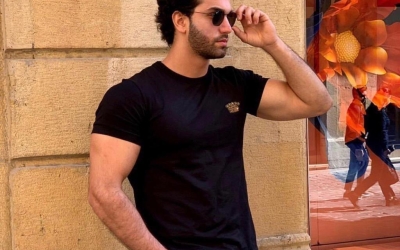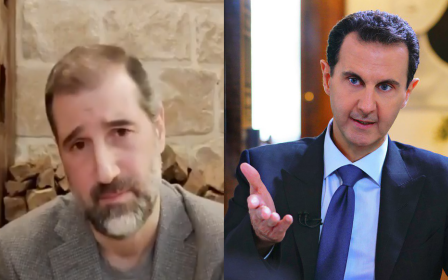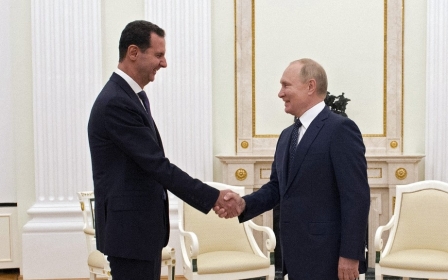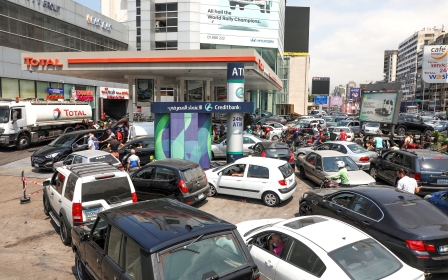Biden administration slammed for granting Bashar al-Assad's cousin entry to US

The administration of US President Joe Biden has come under fire from lawmakers for granting a visa to the cousin of the Syrian president, triggering fresh concerns that the White House is green-lighting a normalisation of relations with Damascus and unwinding sanctions on Bashar al-Assad's government.
Ali Makhlouf, whose father is on multiple US sanctions lists, was spotted driving a $300,000 Ferrari sports car in Los Angeles earlier this month, and joking with a YouTuber about the source of his apparent wealth.
Republican Congressman Joe Wilson, a member of the House Armed Services and Foreign Affairs Committees, told The Washington Free Beacon on Wednesday that the "image of Ali Makhlouf, cousin of brutal Syrian dictator Bashar al-Assad, driving a $300,000 Ferrari on the streets of LA, is disgusting".
"This egregious display underscores the need to enforce US sanctions and expand them to include the extended family members of the Assad regime. Congress has the right to know how this man got into the United States," he added.
It's unclear exactly how Mahklouf entered the US. Although a Syrian national, he was sent to the UAE at the start of the country's civil war and his glossy social media posts, often posing shirtless or driving expensive sports cars are datelined from the country.
Those travelling to the US on a Syrian or Emirati passport are required to present a valid visa before entering the country.
Makhlouf and the sunglasses-sporting woman next to him appeared to be caught off-guard when they realised they were being interviewed by Daniel Mac, a presenter who runs shows on YouTube, TikTok, and Instagram in which he asks wealthy drivers what they do for a living.
"I work," the 20-something Syrian said. After being pressed, Mahklouf added with a grin: "I'm doing an internship."
Softening position
Since taking office earlier this year, the Biden administration has been accused of softening its position on the Syrian government, which previous Republican and Democratic administrations had long sought to isolate.
Middle East Eye reported in August that Jordan, a steadfast US ally, began accelerating its push to normalise ties with its neighbour Syria, after King Abdullah meet with President Biden at the White House.
The White House has also been pushing a plan to provide gas and electricity to Lebanon via Syria. MEE revealed how the plan would allow the Assad government to receive transit fees and sanctions waivers, while also potentially benefiting Russian companies tied to Vladimir Putin.
Makhlouf's entry into the US also raised concerns about the State Department's visa review process, infuriating many who have gone through the process and applied for entry based on merit.
One YouTuber wrote: "My brother's visa to study in a US university was refused, my friend got invited by MIT but his visa got refused, yet this war criminal can get into the US with all the money his dad stole from the Syrian people and enjoy his life there?!? What the actual F?!"
Republican Congresswomen Yvette Herrell said it represented a broken US system: "If the cousin of a brutal dictator and the son of one of the most corrupt and brutal warlords in the world is a US visa holder, it points to extreme flaws in our vetting process."
The State Department told The Washington Free Beacon it refused to comment on Mahklouf's entry into the US.
MEE also reached out directly to the State Department, but did not receive a response by the time of publication.
Middle East Eye delivers independent and unrivalled coverage and analysis of the Middle East, North Africa and beyond. To learn more about republishing this content and the associated fees, please fill out this form. More about MEE can be found here.





